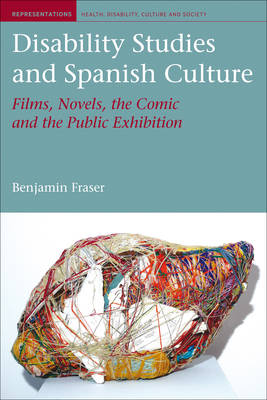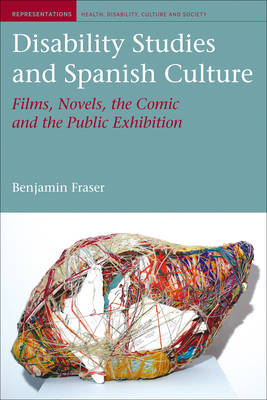
- Retrait gratuit dans votre magasin Club
- 7.000.000 titres dans notre catalogue
- Payer en toute sécurité
- Toujours un magasin près de chez vous
- Retrait gratuit dans votre magasin Club
- 7.000.0000 titres dans notre catalogue
- Payer en toute sécurité
- Toujours un magasin près de chez vous
Disability Studies and Spanish Culture
Films, Novels, the Comic and the Public Exhibition
Benjamin Fraser
34,95 €
+ 69 points
Description
An Open Access edition of this book is available on the Liverpool University Press website and the OAPEN library.
Disability Studies and Spanish Culture is the first book to apply the tenets of Disability Studies to the Spanish context. In particular, this work is an important corrective to existing cultural studies of disability in Spain that tend to largely ignore intellectual disabilities. Taking on the representation of Down syndrome, autism, alexia/agnosia as well as childhood disability, its chapters combine close readings of a number of Spanish cultural products (films, novels, the comic/graphic novel and the public exhibition) with a broader socio-cultural take on the state of disability in Spain. Fraser is just as comfortable with the work of disability theorists who advocate a social model of disability (such as Lennard J. Davis, Licia Carlson, Eva Feder Kittay, David T. Mitchell, Sharon L. Snyder and more) as he is with the analysis of film and literature in the Spanish context. While researchers and students of cinema will be particularly interested in the book's detailed analyses of the formal aspects of the films, comics, and novels discussed, readers from backgrounds in history, political science and sociology will all be able to appreciate discussions of contemporary legislation, advocacy groups, cultural perceptions, models of social integration and more. The book is directed, also, toward those readers more familiar with the growing field of Disability Studies itself--making the argument that the specific case of Spanish culture and society speaks to shifts in the social attitudes and theoretical understandings of disability more broadly considered.Spécifications
Parties prenantes
- Auteur(s) :
- Editeur:
Contenu
- Nombre de pages :
- 256
- Langue:
- Anglais
- Collection :
- Tome:
- n° 6
Caractéristiques
- EAN:
- 9781846318702
- Date de parution :
- 19-03-13
- Format:
- Livre relié
- Format numérique:
- Genaaid
- Dimensions :
- 155 mm x 236 mm
- Poids :
- 521 g

Les avis
Nous publions uniquement les avis qui respectent les conditions requises. Consultez nos conditions pour les avis.






